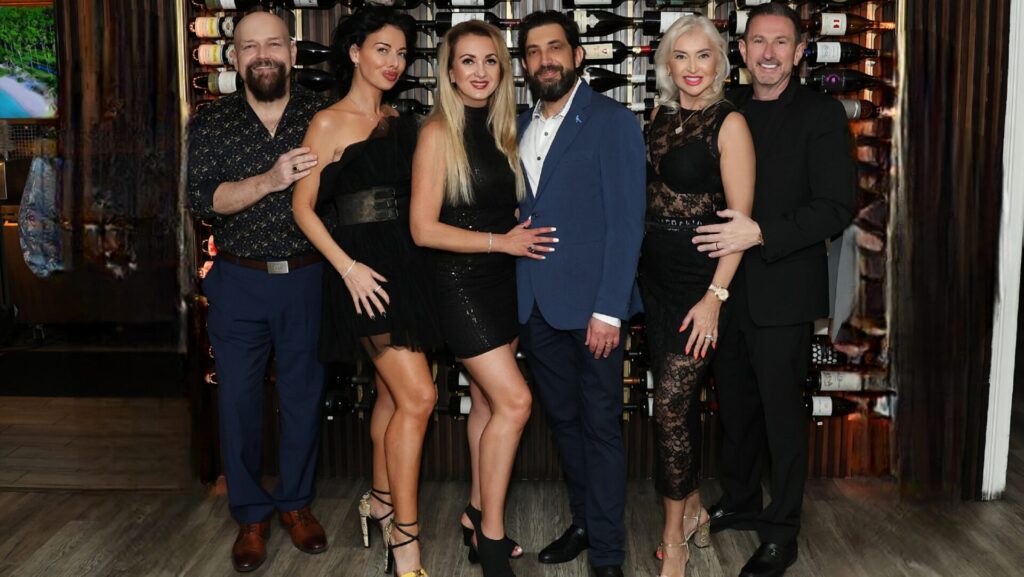By a Neuropsychologist Who’s Been Watching Brains for a Quarter of a Century
Everyone wants to be happy.
Everyone wants to live a long, joyful, healthy, fulfilling life.
But here’s the thing: almost no one knows the simple secret to getting there.
We chase success, biohack our bodies, download habit trackers, drink spinach smoothies, journal our way through every emotional crisis, and try to rewire our thoughts through daily affirmations. We go to psychiatrists for medication, psychologists for insight, somatic therapists for release of body memory, and then to energy healers for soul retrieval. We attend retreats in remote places, drink ayahuasca in the jungle, and try rare and ancient methods in hopes of finally feeling something real. We wake up at 5 a.m., take cold plunges, meditate, manifest, align our chakras, listen to trauma-informed podcasts, and keep gratitude journals by the bed. And yet—despite this endless pursuit of healing, regulation, and performance—so many people still feel disconnected, anxious, depressed, lonely, and deeply exhausted. Neuropsychologically, this reflects a misfiring of the brain’s reward system, constantly fed by external dopamine hits while neglecting the slower, quieter neurobiology of connection, safety, and purpose. The nervous system, constantly overclocked, never lands. The prefrontal cortex, burdened with self-monitoring and perfectionism, forgets what spontaneity feels like. In all our striving to feel better, we have turned healing into a performance—and in doing so, we often miss the core truth: that wholeness doesn’t come from constant fixing, but from finally feeling safe enough to just be.
Yet our nervous system—our mind—is constantly in overreactive mode. We overreact to everything around us. A headline on the news, a tragic story in the paper, the sudden death of someone close, or even the loss of a friend of a friend. Our bodies respond with cortisol, adrenaline, and a storm of mental noise that we can’t seem to quiet down. Even when we’re still, we’re not at peace—we’re scanning, bracing, anticipating. This chronic overactivation keeps us in a state of hypervigilance where joy becomes harder and harder to access. And so we ask: where is the joy? Where is that soft place inside where life feels not just bearable, but beautiful? Sometimes, the answer isn’t in doing more—it’s in remembering how to feel, how to rest, how to be truly present without needing to improve every moment. Joy doesn’t shout—it whispers, and we must become quiet enough inside to hear it again.
But what if I told you that the real secret to long-lasting health, happiness, and longer life isn’t found in your DNA, your productivity hacks, or your morning routine? Not even in your bank. Poor people are often more hopeful in anticipation of a big financial windfall. In contrast, wealthy individuals are often highly disappointed that financial stability still does not allow them to live a happy, long life. From a neuropsychological perspective, this contrast reflects how the brain’s reward system responds not just to what we have, but to what we expect. For those with less, the imagined future activates dopamine circuits, offering motivation and a sense of purpose through hope. For the wealthy, however, the absence of anticipated emotional fulfillment despite material success can create a reward prediction error in the brain, leading to deep disappointment—a realization that money alone cannot satisfy the fundamental human needs for meaning, connection, and inner peace.
Thus, the real secret to long-lasting health, happiness, and longer life is found to be in your relationships.
It’s people! Yup. Humans. The messy, complicated, emotional, incredible at times annoying people in your life.
And there is the science to prove it.
Why Your Brain Is Basically a Golden Retriever
Let’s break it down.
Your brain is wired for connection. It’s social, emotional, and way more relational than rational.
When you feel emotionally safe and close to others, your nervous system goes into a healing state—parasympathetic activation. You digest better, sleep deeper, think clearer, and even regenerate faster.
Humans are social creatures. Our nervous systems don’t just prefer connection — they depend on it.
When we’re physically near others — even without speaking — something extraordinary happens. We subconsciously read each other through tiny facial expressions, micro-movements, tone shifts, and body language. These nonverbal cues help us feel safe, seen, and understood.
But it goes even deeper than that.
There’s an energetic exchange that happens between humans — a co-regulation of the nervous system. Even a simple presence — sitting in silence beside someone who cares — shifts our internal state.
And touch?
A single 20-second hug can lower cortisol, reduce blood pressure, and release oxytocin — the “bonding hormone” that calms the brain, strengthens immune function, and heals the entire body.
From a neuropsychological point of view, close human connection is not a luxury. It’s a biological need, a healing force, and one of the most powerful predictors of longevity we’ve ever discovered.
And guess what? We’ve got 80 years of research to back it up. But when you’re lonely or chronically disconnected? Stress hormones surge. Inflammation rises. Your immune system tanks.
And your brain? It starts to struggle. Focus, memory, mood—everything takes a hit. Fun (and terrifying) fact: Chronic loneliness is now considered as dangerous as smoking 15 cigarettes a day.
Likes have replaced laughter.
Scrolls have replaced eye contact.
And texting “I’m here for you” doesn’t land quite the same as sitting on the couch in silence, shoulder to shoulder, sharing space and breath.
Yet, what they’re missing isn’t just comfort or companionship.
They’re missing one of the most protective factors for mental health, physical resilience, and future happiness.
In past years I have seen a lot of children, who have problems socialising. Younger generations are increasingly stumbling when it comes to real, nourishing socialization. Whether it’s the isolating pull of technology, the lingering effects of the COVID era, or just the fast-paced nature of modern life — many young adults are struggling to form and maintain deep, emotionally fulfilling relationships.
Okay, But Let’s Make It Real
Put the science aside for a sec. Let’s get human. Want to know what truly determines how long you’ll live and how much you’ll enjoy the ride?
It’s not your diet.
Not your gym membership.
Not your net worth.
It’s your people.
Those who show up.
Those who listen.
Those who laugh at your worst jokes and sit beside you in silence when you can’t even speak.
Picture yourself at 80.
Who’s sitting across the table?
Who knows your heart?
Who says “I’m here,” when life goes off the rails?
Those connections are everything.
So Harvard’s message is loud and clear: Choose your relationships like your life depends on it. Because it kind of does. And 80 years of research have proved it.
The Longest Study in Human History (Still Going Strong)
Back in the 1930s, Harvard launched what would become the longest longitudinal study ever conducted on human life. Over 80 years, researchers followed 1,300 people—through world wars, economic crashes, marriages, divorces, deaths, and dreams.
After eight decades of data, the most shocking discovery wasn’t about cholesterol or genetics.
It was this: The quality of your relationships at age 50 predicts how healthy and happy you’ll be at 80. In other words: the people around you today are shaping your future longevity.
How to Nourish the Bonds That Keep You Alive (and Thriving)

Here are 10 meaningful and doable strategies to strengthen your friendships and deepen your connections — aka, feed the relationships that will feed you for life:
1. Show Up Consistently (Even in Small Ways)
- It’s not about grand gestures—it’s about micro-moments of connection:
- A check-in text.
- A 10-minute coffee call.
- A meme that says “I saw this and thought of you.”
- Consistency creates safety. And safety is the soil where real connection grows.
2. Listen to Understand, Not to Reply
- Most people don’t need solutions—they need presence.
- Next time your friend talks, ask yourself:
- “Am I listening to fix… or to feel them?”
- Empathy nourishes like nothing else.
3. Celebrate Their Wins Like They’re Yours
- Did they land a new job? Find love? Leave a toxic situation?
- Don’t downplay. Don’t compare. Just cheer.
- Your joy for their joy makes your bond unbreakable.
4. Be Brave Enough to Apologize (and Forgive)
- All close relationships hit bumps.
- Learn to say, “I was wrong. I’m sorry.”
- And when you’re on the receiving end? Forgiveness is one of the most healing acts you can offer.
5. Go Offline Together
- Yes, Zoom and texting help.
- But nothing replaces face-to-face connection.
- Plan tech-free walks, dinners, or lazy Sundays. Your nervous systems will thank you.
6. Get Vulnerable—Gently
- Vulnerability isn’t over-sharing. It’s saying:
- “This matters to me.”
- “I felt hurt when…”
- “I miss you.”
- It builds trust and tells your friend: “You’re safe with me.”
7. Touch Base in Transitions
- Moving? Grieving? Changing jobs?
- Reach out. Even if you don’t know what to say.
- Being there during someone’s “in-between” seasons bonds you for life.
8. Laugh—A Lot
- Laughter isn’t just fun—it’s medicine.
- It regulates the nervous system, boosts oxytocin, and makes your connection feel effortless.
- Inside jokes = neurochemical glue
9. Do Something New Together
- Shared novelty—like taking a class, hiking a new trail, or traveling—lights up the brain and creates “relationship memory.”
- These positive experiences build emotional reserves for harder times.
10. Say the Good Stuff Out Loud
- Don’t wait for a birthday or crisis to tell your friend what they mean to you.
- Say: “I love how you always check on people.”
- “You make me feel like I can be myself.”
- Gratitude shared is a deepened connection.
How to Nourish the Bonds That Keep You Alive (and Thriving)
Now for the fun part: how do you actually create the kinds of connections that make your brain and body thrive?
1. Be Present Like You Mean It
Put down the phone. Look someone in the eye. Listen to understand, not just respond. Presence rewires your brain for empathy and trust.
2. Train Your Brain with Neurofeedback
Sometimes, stress, trauma, or neurodivergence (hello, anxiety or ADHD) can make it hard to feel safe with people. Neurofeedback helps your brain relearn calm, focus, and self-regulation by literally training your brainwaves.
It’s like a gym for your nervous system—and over time, it can help you feel more at ease in connection, less reactive, and more emotionally resilient. There are specific areas in brain training which can help you have more friends easier.
Want to live longer? Help your brain stop living in survival mode.
3. Go Deep: Try Regression or Inner-Child Therapy
Often, we carry unconscious patterns from childhood that sabotage adult relationships.
Do you shut down when people get close? Or sabotage intimacy just when it gets good?
Regression therapy gently accesses those early emotional imprints and helps you rewire them.
By healing attachment wounds, you create space for deeper connection—and yes, better health. Emotional freedom can literally extend your lifespan.
4. Co-Regulate More, Self-Regulate Less
Meditation is great. But so is laughing with a friend, hugging your partner for 30 seconds, or going on a silly walk with your kid. These shared moments activate the vagus nerve, calm the body, and build emotional security. We don’t just regulate alone—we regulate together.
5. Keep Your Circle Small, but Solid
You don’t need a hundred best friends. You need 2–3 safe, emotionally present humans who you can be real with. People who get you. Who sees you. Who shows up.
Your Brain Runs on Love. In a world obsessed with performance and productivity, the longest scientific study on life says something refreshingly simple:
Final Thought:
Strong bones keep you standing.
Strong bonds? They carry you through everything else.
So if you’re taking your vitamins, stretching, and watching your calcium…
Also take time to send that “Hey, thinking of you” message.
Your future self—and your brain—will be grateful.
If you’ve made it this far, thank you — not just for reading, but for caring about your life, your mind, and your relationships. Because here’s the truth: No one is meant to do this alone.
Whether you’re rebuilding connection, rewiring old patterns, or just learning to let people in — you deserve support.
And I’m here for you.
If you’re ready to strengthen your brain, heal your heart, and build a long, vibrant, connected life — I’d be honored to walk that journey with you.
Whenever you need help, I’m just a phone call away.
And you can always find more resources, tools, and ways to work with me at:
Let’s help your brain feel at home in connection again.
Because you were never meant to heal in isolation.
You were meant to thrive — together.




